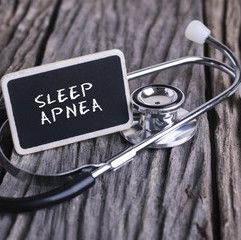Article
Modified Uvulopalatopharyngoplasty and Tonsillectomy are Options for Obstructive Sleep Apnea
Author(s):
Results indicated similar outcomes between those who underwent tonsillectomy and mUPPP, with minor differences favoring the tonsillectomy group.

A randomized clinical trial compared the effectiveness of tonsillectomy (TE) and modified uvulopalatopharyngoplasty (mUPPP) as treatment for obstructive sleep apnea (OSA) in adult patients. Results indicated similar outcomes among each intervention group, with minor differences that were not clinically relevant.
Tosillectomy is not as extensive as the surgical procedure for modified uvulopalatopharyngoplasty. Investigators, led by Joar Sundman, MD, PhD, Department of Clinical Sciences, Intervention, and Technology, Karolinska Institutet, aimed to determine if one intervention was superior to the other.
While approaches including continuous positive airway pressure (CPAP) or a mandibular retaining device (MRD) are first line with high potential for effectiveness, that only goes as far as patient adherence. Adherence to these nonsurgical options continues to pose a problem due to lack of patient use, or improper use.
The Surgeries
Information collected from 90 adult patients with tonsillar hypertrophy and moderate-to-severe obstructive sleep apnea was used in the blinded, randomized, clinical trial. The timeline for surgery ocurred between January 2016-February 2021.
The monitoring of patients began before surgery with the final follow up taking place 6 months postsurgery. In addition to moderate or severe obstructive sleep apnea, patients had a tonsillar hypertrophy size between 2-4, according to the Friedman staging.
The main outcome was measured by between-group differences on the apnea-hypopnea index (AHI) and the Epworth sleepiness scale (ESS). The mean age of the study population was 41.6 years, with the majority (86%) being men. Results showed an average body mass index (BMI) of 29.0.
The Comparison
Both study groups experienced improvements, however, the difference between groups was not clinically relevant.
Patients in the mUPPP group demonstrated a decrease of 43% in AHI score. Initially, this group reported 51 events per hour, which lowered to 28 events per hour following surgery. As for the tonsillectomy group, investigators observed a 56% decrease in AHI score, with 56.9 events per hour at baseline and 24.7 events per hour at follow up.
The analysis revealed a mean difference of 9.2 events per hour between groups, favoring the TE group. Howver, the effect size was small (Cohen d = 0.44). ESS score difference was also minimal between groups at 1.1 (Cohen d = 0.21), and therefore neither difference is significant.
"This randomized clinical trial demonstrated that mUPPP was not more effective than TE alone in treating patients with tonsillar hypertrophy and moderate to severe OSA," investigators concluded. "However, there was a small difference in favor of TE. Because TE alone is less extensive, it could be considered as an alternative to mUPPP in this selected group of patients with OSA."
The study, "Effectiveness of Tonsillectomy vs Modified Uvulopalatopharyngoplasty in Patients With Tonsillar Hypertrophy and Obstructive Sleep Apnea" was published in JAMA Otolarynology-Head & Neck Surgery.




